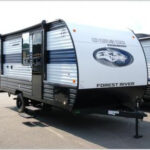Brazil, a vibrant country known for its stunning beaches, Amazon rainforest, and Carnival festivities, attracts millions of tourists annually. However, like any popular destination, it’s essential to be informed about safety and security. If you’re planning a trip, a crucial question is: Is It Safe To Travel To Brazil? This article provides an overview based on the latest travel advisories to help you make informed decisions.
Understanding the Safety Situation in Brazil
Currently, travel advisories indicate that visitors should exercise increased caution throughout Brazil due to crime. The U.S. Department of State, for example, has issued an advisory highlighting crime as a significant concern. It’s important to understand that “crime” in this context encompasses various serious issues, including:
- Violent Crime: Urban areas in Brazil, both during the day and night, experience high rates of violent crime. This includes murder, armed robbery, and carjacking.
- Gang Activity and Organized Crime: Widespread gang activity and organized crime contribute to the overall crime levels in many parts of the country.
- Assaults and Robberies: Assaults, sometimes involving sedatives or drugs slipped into drinks, are unfortunately common.
- Public Transportation Risks: Using municipal buses in Brazil, especially at night, carries an elevated risk of robbery and assault.
Areas to Exercise Extreme Caution or Avoid
While Brazil is a large country and safety levels vary by region, certain areas are considered particularly dangerous and should be avoided or approached with extreme caution:
Border Regions
Travel within 150 km (100 miles) of Brazil’s land borders with Venezuela, Colombia, Peru, Bolivia, Guyana, Suriname, French Guiana, and Paraguay is strongly discouraged due to high crime levels. This advisory does not include the popular Foz do Iguacu National Park or Pantanal National Park, which are considered safer.
Informal Housing Developments (Favelas)
Informal housing developments, known as favelas, vilas, comunidades, or conglomerados, are extremely risky at all times of day. Travel to these areas, even on guided tours, is strongly discouraged. Safety cannot be guaranteed in these communities, and situations can change rapidly. Even areas deemed “safe” by local authorities can quickly become dangerous. Be cautious even in areas surrounding these communities, as violence can spill over.
Brasilia’s “Satellite Cities” at Night
In Brasilia, the administrative regions of Ceilandia, Santa Maria, Sao Sebastiao, and Paranoa, often called “satellite cities,” should be avoided during non-daylight hours (6:00 p.m. to 6:00 a.m.) due to increased crime risks after dark.
Safety Tips for Traveling in Brazil
If you decide to travel to Brazil despite these warnings, enhancing your personal safety is crucial. Here are some essential safety precautions to consider:
- Situational Awareness: Be constantly aware of your surroundings and potential threats.
- Avoid Resisting Robbery: Do not physically resist if you are robbed. Your safety is more important than material possessions.
- Be Wary of Food and Drinks: Never accept food or drinks from strangers due to the risk of sedatives or drugs being used.
- Nighttime Precautions: Exercise extreme caution when walking or driving at night. Avoid walking on beaches after dark and going to bars or nightclubs alone.
- Minimize Displays of Wealth: Do not wear expensive jewelry, watches, or display other signs of wealth that could make you a target for crime.
- ATM and Bank Vigilance: Be extra vigilant when visiting banks or ATMs, as these can be high-risk locations.
- Transportation Hubs and Public Transport: Use caution at major transportation centers and on public transportation, particularly at night, due to the elevated risk of robbery and assault. Avoid municipal buses if possible.
- Hiking Safety: If hiking in isolated areas, exercise increased caution and ideally go with a group or guide.
- Enroll in STEP: Enroll in the Smart Traveler Enrollment Program (STEP) to receive alerts and make it easier for the U.S. embassy to assist you in an emergency.
- Stay Informed: Follow travel advisories and security updates from reliable sources like the Department of State. Review country security reports for Brazil.
- Emergency Plan: Prepare a contingency plan for emergency situations and review traveler checklists before your trip.
- Health Information: Consult the CDC for the latest travel health information related to Brazil.
Conclusion: Informed Travel to Brazil
So, is it safe to travel to Brazil? The answer is nuanced. While Brazil presents safety challenges due to crime, informed and cautious travel is possible. By understanding the risks, avoiding high-risk areas, and diligently following safety precautions, you can mitigate potential dangers and still experience the wonders Brazil has to offer. Staying updated on the latest travel advisories and maintaining a high level of awareness are key to a safer trip.

